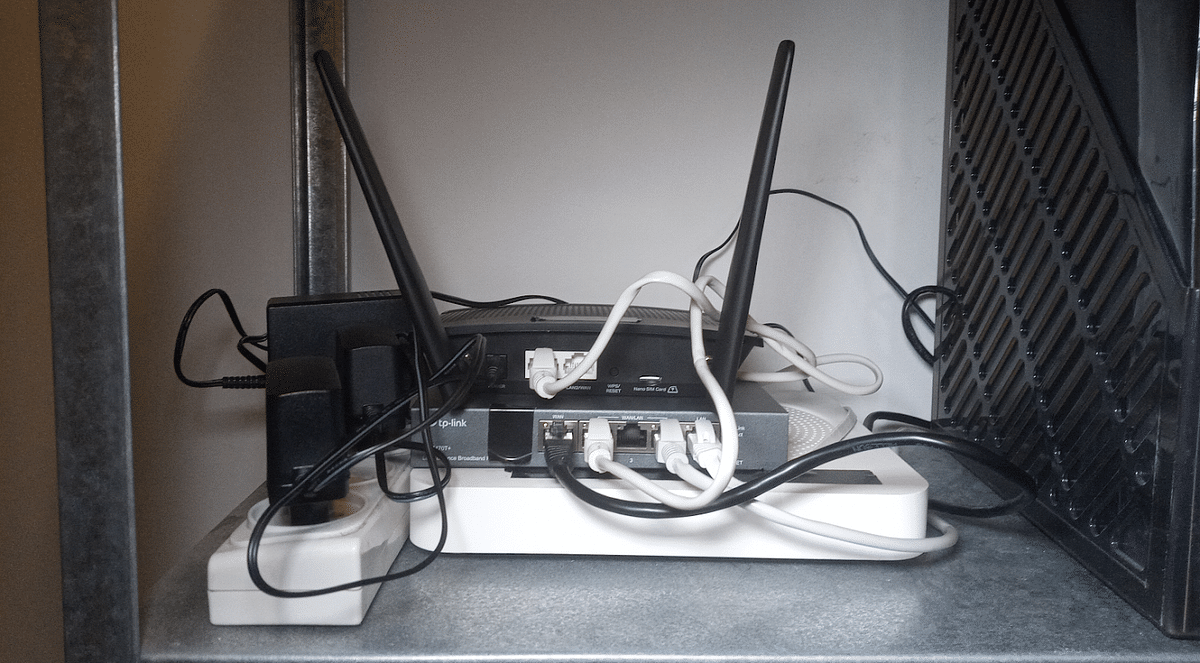In today’s digital age, a reliable internet connection is vital for small and medium businesses (SMBs). Whether it’s maintaining communication with clients, processing transactions, or managing remote employees, having consistent access to the internet is crucial. Yet, no matter how dependable your primary internet service may seem, outages can still occur. That’s why having a backup internet for business is not just a luxury—it’s a necessity. This article will explore the top backup internet services that can keep your business connected and operational during unexpected internet disruptions.
Why a Backup Internet for Business is Essential
There are several compelling reasons to invest in a backup internet for business:
- Minimize Downtime: Internet outages can halt operations, leading to lost productivity and revenue. A backup connection ensures that your business remains operational even when the primary connection fails.
- Ensure Customer Satisfaction: Reliable internet access helps maintain communication with customers, ensuring timely responses and services. A backup solution prevents disruptions that could negatively impact customer experience.
- Support Remote Work: With more employees working remotely, it’s crucial to have a reliable connection to support virtual meetings, file sharing, and collaboration tools.
- Protect Data Integrity: Many businesses rely on cloud services for data storage and applications. A backup internet solution ensures uninterrupted access to these critical resources.
- Enhance Security: A backup connection can provide an extra layer of security, allowing businesses to maintain connectivity for essential security systems like cameras and alarms.
Top Backup Internet Options for Small and Medium Businesses
Now that we’ve established the importance of having a backup internet for business, let’s explore some top options to ensure your SMB stays connected:
1. Mobile Hotspot Devices
Mobile hotspot devices are a popular and convenient choice for backup internet for business. These devices connect to cellular networks and provide a Wi-Fi signal that multiple devices can access. Here’s why mobile hotspots are an excellent backup option:
- Portability: Mobile hotspots are compact and can be easily transported, allowing for flexible deployment in different business locations.
- Flexibility: Businesses can choose from various carriers and data plans, tailoring the solution to fit their specific needs.
- Cost-Effective: Many carriers offer affordable data plans designed for business use, making mobile hotspots a budget-friendly backup solution.
To implement this option, businesses need to purchase a mobile hotspot device and subscribe to a data plan from a carrier of their choice. Keep the device charged and ready for activation when the primary internet connection is disrupted.
2. Dedicated Backup Broadband Connection
A dedicated backup broadband connection is an ideal backup internet for business solution for companies with higher internet demands. This setup involves subscribing to a secondary internet service from a different provider than the primary connection. Here’s why this option is beneficial:
- Seamless Transition: With a dedicated backup connection, businesses can switch between two wired connections with minimal downtime.
- Increased Reliability: Using two separate internet providers reduces the risk of a complete outage due to provider-specific issues.
- Scalable Plans: Many providers offer business-grade plans with varying speeds and bandwidth, allowing businesses to choose a solution that aligns with their requirements.
When selecting a backup broadband connection, consider opting for a different technology than your primary connection (e.g., cable vs. DSL) to enhance redundancy.
3. Fixed Wireless Internet
Fixed wireless internet is an excellent backup internet for business option, especially for businesses located in areas where traditional wired connections may not be available. This technology uses radio signals to deliver internet access. Here are the advantages of fixed wireless internet:
- Wide Coverage: Fixed wireless services often cover areas where other types of internet connections are unavailable, making it a suitable option for businesses in rural locations.
- Competitive Speeds: Many fixed wireless providers offer speeds comparable to traditional broadband, allowing for smooth operations during outages.
- Less Susceptible to Outages: Fixed wireless connections are generally less affected by weather conditions and infrastructure issues that may impact other internet types.
Businesses interested in fixed wireless internet should contact providers that offer coverage in their area to inquire about plans and installation.
4. Satellite Internet
Satellite internet provides a reliable backup internet for business, particularly in regions with limited infrastructure. While it may not offer the same speeds as fiber or cable, it ensures continuous connectivity during outages. Here’s why satellite internet is worth considering:
- Global Coverage: Satellite internet can reach virtually any location, making it an ideal choice for businesses in remote or underserved areas.
- Independence from Local Infrastructure: Since satellite internet doesn’t rely on local cables or phone lines, it’s less likely to be affected by local outages.
- Flexible Plans: Many satellite providers offer business-specific plans with various data limits and speeds.
One potential downside to satellite internet is latency, which may affect activities like real-time video conferencing. However, for general business operations, it’s a reliable backup option.
5. 5G Internet Services
5G technology is revolutionizing the way businesses access the internet, providing ultra-fast speeds and low latency. As a backup internet for business, 5G offers several benefits:
- High-Speed Connectivity: 5G networks provide speeds that rival traditional broadband, ensuring smooth operations even during outages.
- Low Latency: 5G’s low latency is ideal for businesses that rely on real-time applications, such as video conferencing and online collaboration tools.
- Scalability: 5G services can easily scale with your business needs, accommodating growing demands for bandwidth and data.
- Flexible Deployment: Businesses can access 5G through mobile hotspots, fixed wireless, or direct integration into their network infrastructure.
To take advantage of 5G as a backup solution, businesses should check with local carriers for availability and compatible devices.
6. Hybrid Solutions
For businesses seeking maximum reliability, a hybrid solution combining multiple backup options is the best choice. By leveraging different technologies, businesses can create a robust backup internet for business that covers a wide range of scenarios. Here’s how a hybrid approach works:
- Layered Redundancy: Combine mobile hotspots, fixed wireless, and satellite internet to ensure connectivity even during widespread outages.
- Scalable Solutions: Tailor your hybrid setup to your specific business needs and budget, adjusting as your requirements evolve.
- Unmatched Reliability: With multiple backup options, you minimize the risk of being offline, regardless of the circumstances.
Implementing a Backup Internet Solution for Your Business
Implementing an effective backup internet for business requires careful planning and consideration. Here are some steps to guide you through the process:
- Assess Your Business Needs: Determine how much bandwidth and data your business requires to support essential operations during an outage. This assessment will help you choose the right backup solution.
- Evaluate Costs: Consider the costs of different backup options, including equipment, data plans, and installation fees. Balance your budget with your business’s need for reliability.
- Check Coverage and Availability: Ensure the backup solution you choose provides reliable coverage in your area, especially for mobile and fixed wireless options.
- Test Your Backup Connection: Set up and test your backup internet solution before an outage occurs to ensure it functions as expected. Regular testing helps identify any issues before they impact your business.
- Implement Failover Systems: Consider implementing automatic failover systems that seamlessly switch your business’s network to the backup connection when the primary connection fails. This setup minimizes downtime and ensures continuous operations.
- Train Your Team: Educate your employees about the backup internet solution and how to activate or switch to it when needed. Ensure that key personnel understand the importance of maintaining connectivity during outages.
- Consider Redundancy: If possible, combine multiple backup options to create a more resilient internet setup. Redundancy ensures that your business remains connected even in challenging circumstances.
Conclusion
In the modern business landscape, having a backup internet for business is not optional—it’s essential. From mobile hotspots to 5G services, there are numerous options available to ensure your business remains connected during internet outages. By selecting the right backup internet plan, you can minimize downtime, maintain customer satisfaction, and support seamless operations, ensuring your business thrives even when challenges arise. Invest in a reliable backup internet solution today and experience the peace of mind that comes with knowing your business is always connected.



